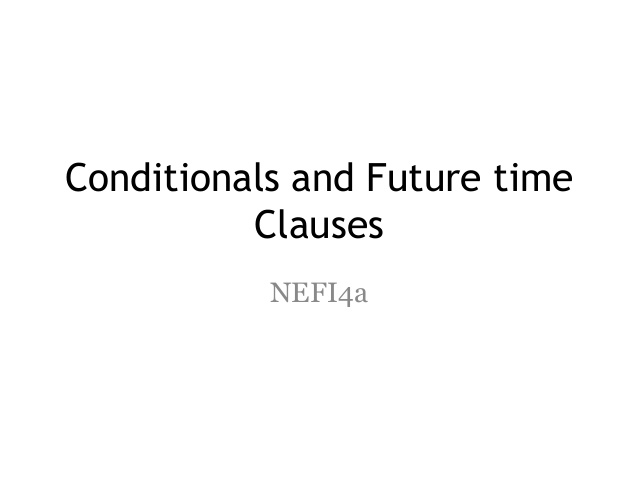First conditional
if clause and main clause
All conditional sentences have two parts: the ifclause and the main clause. It doesn’t matter which clause comes first, but when the if clause comes first, we should put a comma after it.
- If it rains, we’ll stay home
- We’ll stay home if it rains.
if + present, future
In the first conditional, the verb in the ifclause is present and the verb in the main clause is future.
- If you don’t go to sleep, you’ll be very tired tomorrow.
Theif clause may have a present or a future meaning, but the verb is always in present (NOT future)
- If you are a good boy tomorrow, mummy will buy you a present. (NOT
If you will be a good boy)
Main clause: will, modal verb, imperative
In the main clause, we can also use may, might, can, must, should instead of will.
- If he doesn’t train harder, he may/might lose the championship.
- If your room is tidy, you can leave.
- If you want to lose weight, you must/should eat less sugary things.
We can also use an imperative instead of will.
- If you arrive after midnight, ring me on my mobile.
Future time clauses
when, as soon as, before, after, until
When we use a verb after when, as soon as, before, afteror until to talk about the future, we have to use this verb in present tense (NOT future). We use the future in the other part of the sentence.
- I’ll retire when I’m 70. (NOT:
when I’ll be) - I won’t call you until I arrive. (NOT:
will arrive.)
Similar to first conditional
Future time clauses are similar to the first conditional. There’s a main clause and a when/after/etc. clause. We use the verbs in these clauses like in the first conditional.
We use a comma when the when/after/etc. clause is at the beginning of the sentence. But we don’t use a comma if the when/after/etc. clause is at the end of the sentence.
- I’ll retire when I’m 70.
- When I’m 70, I’ll retire.
We use present in the when/after/etc. clause and we use future in the main clause.
- Before you go to sleep, daddy will tell you a story.
In the main clause, we can also use may, might, can, must, should or an imperative instead of will.
- As soon as you finish, you can leave.
- After you arrive, call me.

